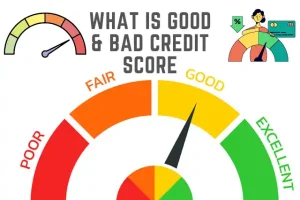Despite the impact of the pandemic, lockdown, and political turmoil hit economy, real estate continues to be a profitable investment. Home prices have continuously risen significantly over the last few years, and have reached a record high.

Real estate financing is a crucial aspect of property investment. Whether you’re a first-time buyer or an experienced investor, securing the right financing is key to making your investment a success.
With the rise in demand in the real estate sector, it has been difficult and expensive for a normal individual to simply invest, rent, or buy one.
Several factors have contributed to increasing the demand in the real estate sector. One of the factors is the new work-from-home (WFH) modality of corporate offices which has motivated adults to move out of high-cost areas and work remotely. The other factors include inflation, urbanization, growing urban population, etc.
But with a given paycheck and salary, one could not simply afford this steeply high real estate. Also, the investors might be wondering: How can I finance a real estate investment? Real estate is a great investment but how can I come up with a steep upfront price tag? Fortunately, you have several options.
So, here in this article, we’ll explore the different types of real estate financing options available and help you choose the best one for your investment.
Real Estate Financing Options
Option 1: Finance with CASH – Pay Upfront with Full Cash.
A simple and easy option, you could just pay the full price for the property upfront with CASH. Of course, doing so requires having the resources available to do this.
Pros: Paying upfront cash significantly improves your opportunity to purchase real estate since it removes any financing doubts in the seller’s mind. Paying cash enables you to acquire properties at significant discounts in exchange for the convenience cash offers.
This is beneficial, especially in the situation of a short-term deal, where you intend to sell the house shortly after you buy it (known as “flipping”). In addition, paying cash saves buyers a lot of money in interest expenses that come with private, hard money, or conventional loans. It also reduces the fear of losing a good deal or an opportunity due to a delay in transactions as a result of financing.
Cons: Paying with cash all in might refrain you from using the concept of leverage in real estate.
Meaning: Say you have $100,000, instead of using all the cash to buy one property, you could use a piece of that money say $10,000 (10%), and finance the rest (90%) to buy 10 more properties. Doing so might give you extra benefits, say rental income from 10 properties and a possible capital gain by selling those properties.
Read About: How To Use Leverage in Real Estate
Option 2: Finance your property with a Private Individual Lender.
Private individual lenders are lenders who operate outside of financial institutions. They make a profit generally by lending money at higher interest rates to those who increase the value of their investment properties.
Pros: Private lenders tend to be far more flexible than traditional institutions, both with who they are willing to lend to and how quickly they can provide funds. If they see you as a good investment, you can reap a host of benefits. If you don’t fit a typical mortgage profile (e.g., your credit is bad), this might be the best solution.
Cons: Private lenders tend to have higher interest rates than banks, especially if they take on credit risk that a bank was unwilling to take. Additionally, you may need to do some work to build up a private lender network to fund your efforts.
Option 3: Finance your property with hard-money loans.
A hard money loan is a type of loan that is secured by real property as collateral and is generally dealt with by an individual (private lender) or company and not a bank.
It’s called a hard loan because it relies on a hard asset — in this case, the property. This loan is a form of a bridge loan, a short-term deal that provides funds until either the house can be sold or a more traditional funding stream can be secured.
Terms of hard money loans can often be negotiated between the lender and the borrower. These loans typically use real property as collateral.
Pros: Hard money loans can get approved within a few days, allowing investors to move quickly on a property. Generally sought by property flippers who plan to renovate and resell the real estate that is used as collateral for the financing—often within one year, if not sooner.
Cons: The interest rates for hard money loans can be significantly higher than traditional mortgages. Since hard money loans rely on collateral rather than the financial position of the applicant, the funding time frame is shorter. If the borrowers failed to repay the loan and default, it can result in a profitable transaction for the lenders through collecting the collateral.
Also Read: Understanding Real Estate Financing
Option 4: Finance your property with Conventional Bank Financing.
This is the most common form of financing. In this case, a financial institution (bank) lends money to the borrower based on credit history and ability to pay off the loan in the future.
Pros: Financing with a bank’s option tends to have a lower interest rate than using a private lender. Also, financing through a bank can maximize your potential profit based on how much cash you have available for a down payment.
Cons: Banks have a much longer approval process and much stricter lending procedures than private lenders. Due to this, there’s every chance of missing out on a good real estate deal.
Since financing with banks is done for a long period of time, the periodic most borrowers are limited on how many conventional mortgages they can have open at a time. One of the potential problems is a risk. In the event of a rental property vacancy, having a mortgage payment can quickly eat into your profits.
Which Financing Option is Right for me?
It depends. Two primary factors will determine the best choice: your unique financial situation and your ultimate goal for the property.
For those doing “flipping”, a fix-and-flip, a hard money loan could be a great option. You can get the money faster and once you sell it; you can return it with certain interests in no time.
But if you plan to buy and hold property, then the most profitable decision may be financing it with financial institutions like banks. Also, it depends on how much cash you have available to you and how risk-averse you are.
Read More: How to Buy Your First Real Estate Investment Property
The Bottom Line
Personally, I prefer to finance with cash or with individual private lenders because of the speed and flexibility both provide. Exploring any one of these financing opportunities can help you get in the game and begin maximizing your money as quickly as possible.
And no matter how much cash you have on hand or whatever options you choose, investing in real estate is possible and is one for the future. So choose the best Real Estate Financing Options that suit you.


